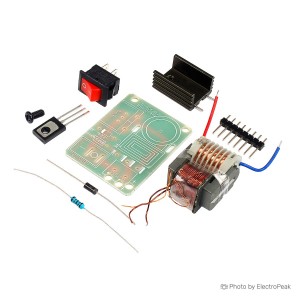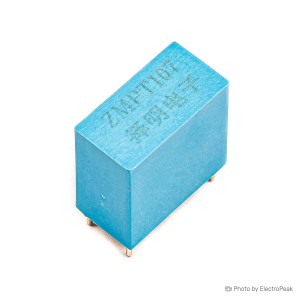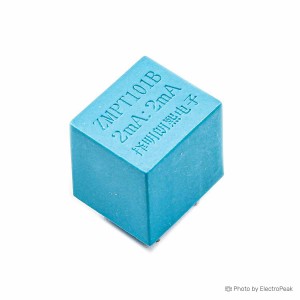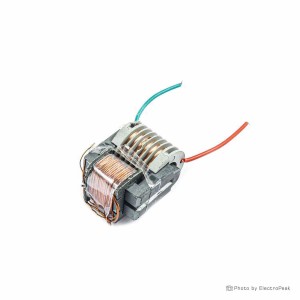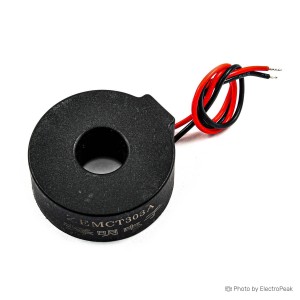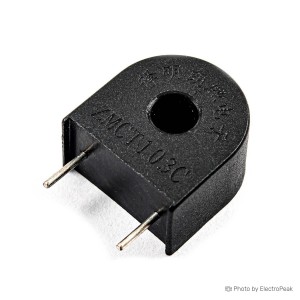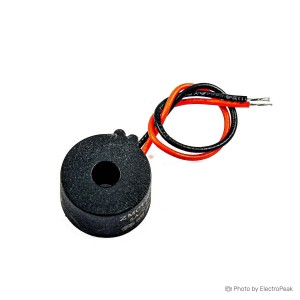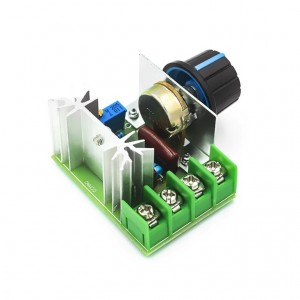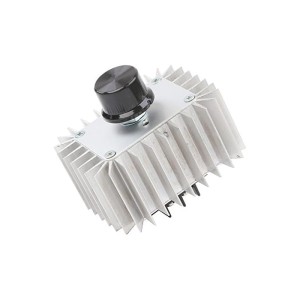Absolutely, AC-AC transformers exhibit versatility, making them suitable for both low-power and high-power electronic circuits. The key lies in selecting a transformer model that aligns with the specific power requirements of the application. Lower-power transformers, like the ZMCT series, are ideal for applications such as smart home devices and energy monitoring, while high-power transformers, including the High Voltage Flyback Transformer, cater to projects requiring substantial voltage levels, like experimental setups and high-voltage power supplies.
AC-AC Transformer
AC-AC Transformers:
AC-AC transformers are essential components in electronics, specializing in converting alternating current (AC) voltage levels. These transformers play a crucial role in facilitating efficient power distribution and utilization across various electronic applications. Whether you're working on DIY projects, industrial automation, or precision instrumentation, AC-AC transformers ensure the seamless conversion of AC voltages to meet the specific needs of your devices.
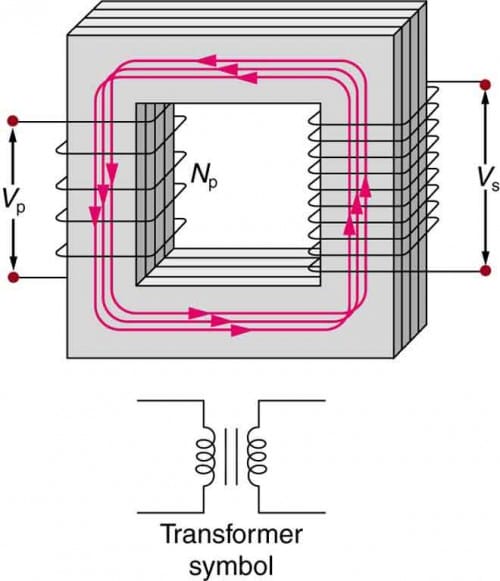
Price of AC-AC Transformers:
The price of AC-AC transformers can vary based on factors such as power capacity, precision, and specific features. Transformer models designed for high-frequency applications or those with advanced sensing capabilities may have different price points. Consider your project requirements and budget constraints to find an AC-AC transformer that strikes the right balance between performance and cost-effectiveness.
Tips for Buying AC-AC Transformers:
Identify Power Requirements: Determine the required power capacity and voltage range for your project to ensure the transformer meets your specifications.
Consider Application Specifics: Different transformers are optimized for specific applications. Choose a model that aligns with your project's needs, whether it's current monitoring, voltage sensing, or high-frequency applications.
Check Accuracy: Precision is vital, especially in applications where accurate voltage or current measurements are critical. Look for transformers with high accuracy ratings.
Evaluate Size and Form Factor: Consider the physical dimensions of the transformer to ensure it fits comfortably within your project's design constraints.
Review Operating Conditions: Check the transformer's operating temperature range and environmental conditions to ensure it can perform reliably in your intended application.
Types of AC-AC Transformers:
ZMCT303A Current Transformer: Ideal for precise current monitoring in energy management systems and industrial automation.
ZMPT107 Voltage Transformer: Known for accuracy in converting AC voltage levels, suitable for voltage monitoring in industrial equipment.
High Frequency Transformer Booster Coil Inverter - 15kV: Designed for high-voltage applications, perfect for projects requiring elevated voltage levels.
ZMCT102W Current Transformer: Offers high accuracy and wide frequency response, suitable for power quality monitoring.
15KV Inverter Generator Ignition Coil Module DIY Kit: Convenient DIY kit for hobbyists and experimenters interested in high-voltage generation.
ZMCT105E Current Transformer: Balanced for smart grid systems and energy monitoring devices, offering accuracy and compactness.
ZMPT109 Voltage Transformer: Known for high precision and stability, suitable for precision instrumentation and data acquisition systems.
High Voltage Flyback Transformer - 10kV: Designed for high-voltage power supplies and experimental setups, providing 10kV output.
ZMCT106F Current Transformer: Tailored for high-frequency current sensing applications, offering accurate measurements.
ZMPT110 Voltage Transformer: Versatile and stable, suitable for applications like precision instrumentation and control systems.
Can AC-AC Transformers be used in both low-power and high-power electronic circuits?
How do the specifications of ZMCT series and ZMPT series transformers differ in terms of accuracy and application suitability?
The ZMCT series and ZMPT series transformers differ in their primary focus and application suitability. ZMCT series transformers, such as ZMCT303A and ZMCT105E, are tailored for current sensing applications, offering high accuracy in measuring AC currents. On the other hand, ZMPT series transformers, like ZMPT107 and ZMPT109, specialize in accurate voltage measurements. The choice between the two depends on the specific needs of the project, with ZMCT series being ideal for current monitoring applications and ZMPT series for precise voltage sensing requirements.
What role do AC-AC Transformers play in minimizing electromagnetic interference (EMI) in electronic circuits?
AC-AC transformers play a vital role in minimizing electromagnetic interference (EMI) by incorporating galvanic isolation in electronic circuits. Galvanic isolation prevents direct electrical contact between input and output circuits, reducing the risk of EMI transmission. This feature ensures electromagnetic compatibility (EMC) and prevents interference with other electronic devices. The isolation provided by AC-AC transformers is particularly valuable in applications where maintaining signal integrity and preventing cross-talk are essential for the reliable operation of electronic circuits.
Difference between Iron Core Transformer and High Frequency Power Transformer:
The difference between an Iron Core Transformer and a High-Frequency Power Transformer lies in their design, intended applications, and operational characteristics.
An Iron Core Transformer typically uses laminated iron cores to enhance magnetic coupling between the primary and secondary coils. These transformers are commonly employed in traditional power distribution systems, voltage regulation, and various electronic devices operating at lower frequencies. The iron core ensures efficient energy transfer, making these transformers suitable for applications where a stable and reliable power supply is essential.
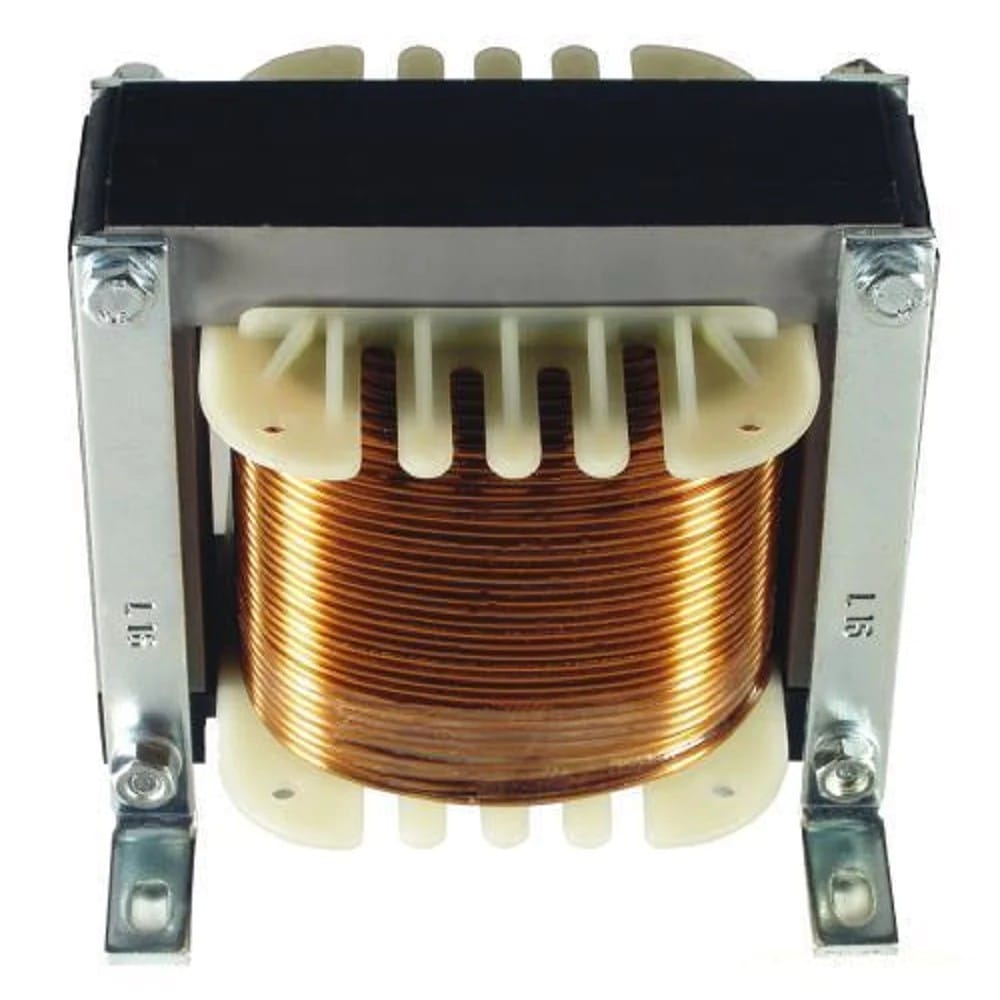
On the other hand, a High-Frequency Power Transformer is designed to operate at elevated frequencies, typically in the kilohertz or megahertz range. Unlike traditional iron core transformers, high-frequency transformers often feature ferrite cores or other materials optimized for rapid magnetic flux changes. These transformers are commonly used in switch-mode power supplies, inverters, and electronic devices where high-frequency operation allows for smaller and lighter transformer designs. The use of high-frequency transformers contributes to improved efficiency and reduced size, making them ideal for modern electronic applications that prioritize compactness and energy efficiency.
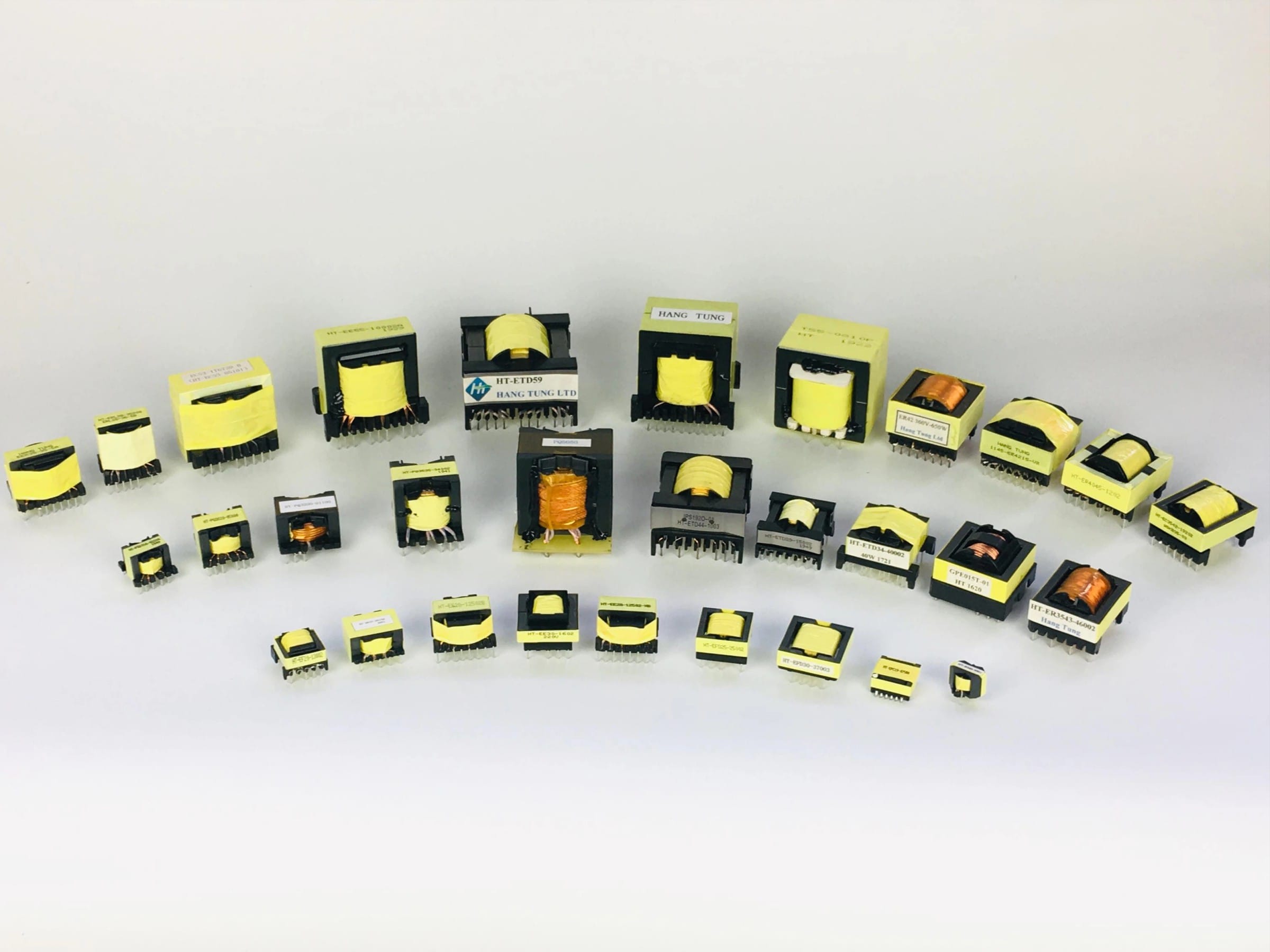
In summary, the primary distinction lies in the operational frequency range and core material, with Iron Core Transformers suited for lower frequencies and High-Frequency Power Transformers optimized for efficient operation at higher frequencies.
